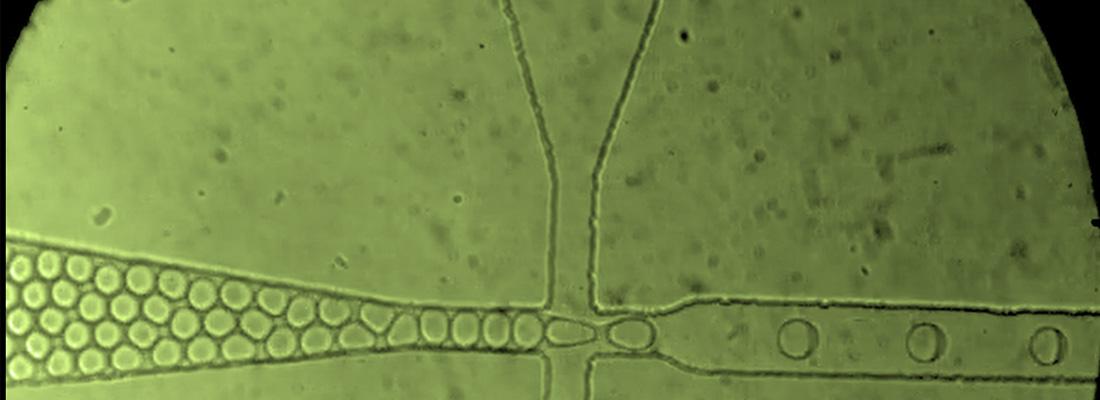Food, Global Health Reading time 2 min
Deciphering the potential of microbial ecosystems using a new microfluidic approach
Published on 27 October 2020

Microbial ecosystems represent a gold mine for the prospecting of new functions of biotechnological interest. However, the majority of species that make up these complex communities are difficult, if not impossible, to study.
A new technological approach
As part of the European Catsys and Metafluidics projects, researchers from the Toulouse Biotechnology Institute and the University of Cambridge have developed a new microfluidic* approach to explore the (infinite) potential of these microbial ecosystems. An ultra-high-throughput screening technique is miniaturized at the picoliter scale, in droplets 18 µm in diameter. At least 1,000 times faster and less expensive than conventional technologies, it makes it possible to explore the functional diversity of thousands of bacterial genomes in just one hour of work.
*Microfluidics is the science and technology of systems handling fluids with at least one characteristic dimension at the micrometer range.
For which applications?
These miniaturized approaches are compatible with the discovery and engineering of a very wide variety of enzymes and metabolic pathways of interest for human and animal health, or, for example, for the decontamination of polluted ecosystems. This technology has already made it possible to identify new interactions between humans and their microbiota, particularly in the context of chronic inflammatory bowel diseases.
Encouraging prospects
These developments offer broad prospects for functional metagenomics, i.e. the study of functions encoded by all the DNA of microorganisms from complex environments (e.g. intestine, oceans, soil, air, etc.). They open a new era for the discovery of new enzymes and other pathways for the synthesis of molecules of biotechnological interest.
Investigating host-microbiome interactions by droplet based microfluidics Alexandra S. Tauzin, Mariana Rangel Pereira, Liisa D. Van Vliet, Pierre-Yves Colin, Elisabeth Laville, Jeremy Esque, Sandrine Laguerre, Bernard Henrissat, Nicolas Terrapon, Vincent Lombard, Marion Leclerc, Joël Doré, Florian Hollfelder & Gabrielle Potocki-Veronese Microbiome volume 8, Article number: 141 (2020) https://microbiomejournal.biomedcentral.com/articles/10.1186/s40168-020-00911-z
